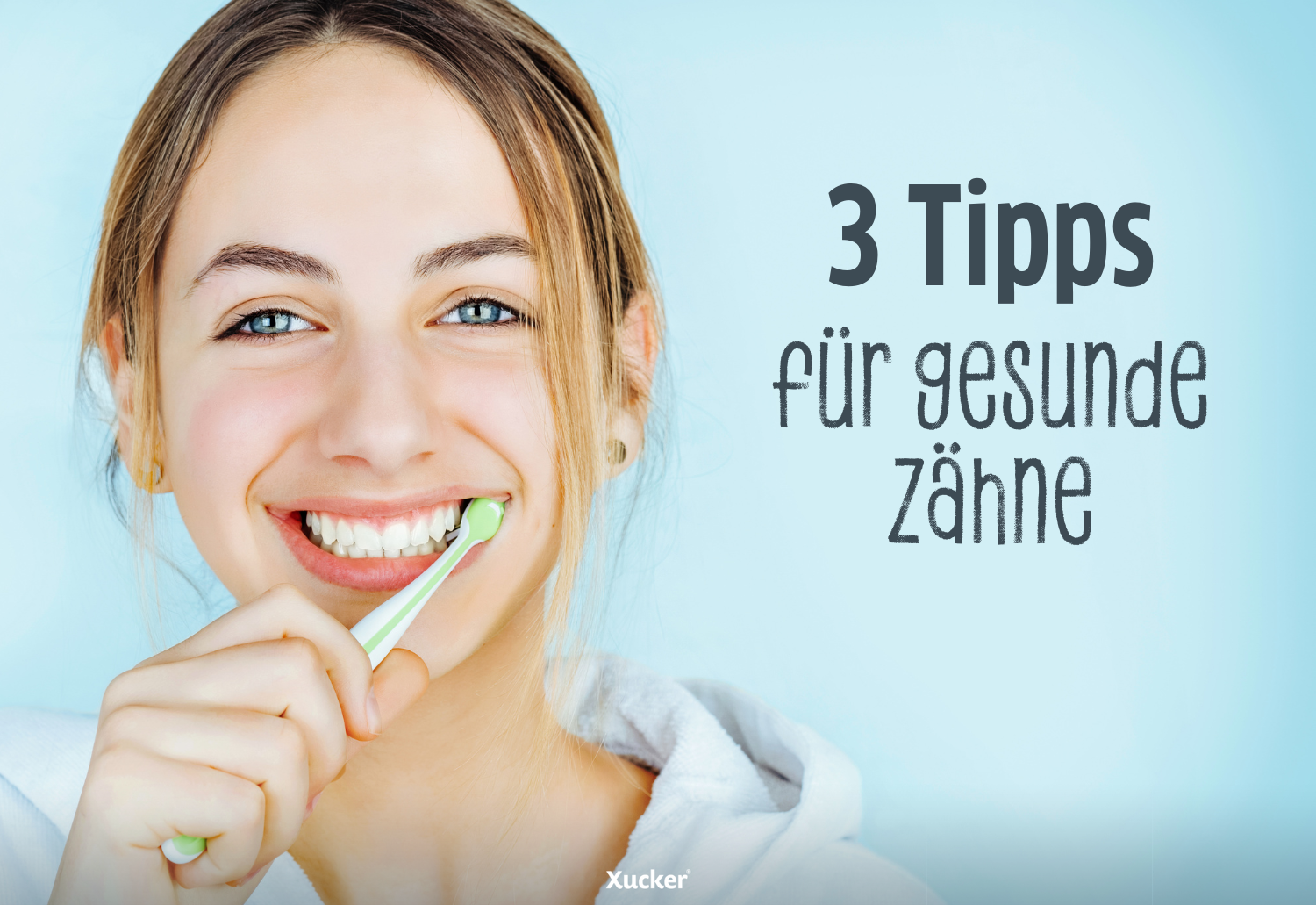
Goodbye Caries - 3 tips for healthy teeth
Reading time: 2 minutes
Many adults struggle with tooth decay. Dental caries is caused by bacterially produced acid that attacks the teeth. The caries bacteria, a special type of streptococcus, metabolise carbohydrates such as sugar or starch, creating an acidic environment that reaches its maximum just a few minutes after eating. At acidic pH levels around 4 - 5.5, the caries bacteria manage to attach themselves to the teeth, where they unleash their damaging effects, creating "holes" in the teeth. There are several tricks to break this cycle. We have summarised three of them below.
Our tips against tooth decay
1. the right food
Caries bacteria love sugar and other easily digestible carbohydrates like white flour. They multiply faster the more of it they can get. Only a few minutes after eating a sugary food, the acidity in the mouth increases. Sticky foods - including squeezies and smoothies - and sugary drinks are the most problematic. If food remains in the mouth for a long time, caries bacteria have plenty of time to produce acid from it, which attacks the teeth. Bread, muesli and potatoes can also become a caries risk if the leftovers and plaque are not removed by brushing the teeth.
Care should also be taken with fruit and dried fruit, which are not only sweet but also naturally contain acid. Teeth should therefore not be brushed immediately after a fruit meal. It is only about 20 minutes later that the acid content in the mouth has decreased and the enamel has been strengthened again, and the teeth are ready to be brushed. Drinking a glass of still water slowly can also help to dilute the acidic saliva somewhat. If this break is not taken, the bristles of the toothbrush can wear away not only plaque but also enamel, making it even more sensitive.
Foods such as vegetables, meat and cheese have a low cariogenic potential. They can be eaten without hesitation. Cheese has a special significance: in combination with cariogenic products such as bread, the calcium it contains can help neutralise saliva and lead to remineralisation of the tooth enamel.
2. use iodised salt containing fluoride
One of the most effective ways to prevent tooth decay is to use flouridated salt. It is cheap, available everywhere and one of the most effective methods. The risk of ingesting too much fluoride is extremely low since drinking water is no longer fortified with fluoride. You should only be careful if you drink a lot of green and black tea, which can also contain a lot of fluoride.
3. use xylitol and erythritol
In addition to regular tooth brushing and flossing, food plays an important role. If you use xylitol and erythritol instead of sugar to sweeten your food and drinks, you lower your risk of tooth decay, because both substances are useless to caries bacteria. Xylitol, taken as a powder, promotes salivation and saliva is rich in calcium phosphate, which is known to help form and harden tooth enamel. Saliva can also dilute acids that are harmful to teeth, thus counteracting plaque formation.
Xylitol can be used several times a day to prevent tooth decay. In addition to dental chewing gums, which also clean the teeth mechanically, pure xylitol (e.g. 1 teaspoonful) can also be dissolved in the mouth after each meal.
4. proper dental care before going to bed
Dental care is especially important in the evening, before going to bed. If plaque is not removed thoroughly, bacteria have plenty of time to form acids and attack the tooth. Therefore, do not eat anything after brushing your teeth. In addition to the correct brushing technique, which involves brushing from "red to white", i.e. from the gums to the teeth, the regular use of dental floss can be helpful for cleaning the spaces between the teeth. You should never use a lot of pressure so that neither the gums nor the enamel are damaged. When choosing toothpaste, those who suffer from tooth decay can opt for a fluoride toothpaste, which has been shown to reduce the risk of tooth decay. Fluorides contribute to the remineralisation of teeth and, like calcium, are deposited in the enamel. They can also penetrate caries bacteria and disrupt their metabolism so that less acid is produced. There are also some toothpastes that contain fluoride and xylitol, an ideal combination in our opinion.

Comments (0)
Fields marked with asterisks (*) are required.